10 Facts About Fat You Need to Know
This post may contain affiliate links. As an Amazon Associate, I earn from qualifying purchases. Please read my disclosure.Does eating fat make you gain weight? Guidance about what fats to eat have changed so much over the past few decades: from eating fat, to only eating nonfat products, to now hearing that avocados and olive oil should be part of your daily diet! So what are the true facts about fat? What do you need to know? This guide will outline the 10 facts about fat that will help you decide what to eat and what to avoid!
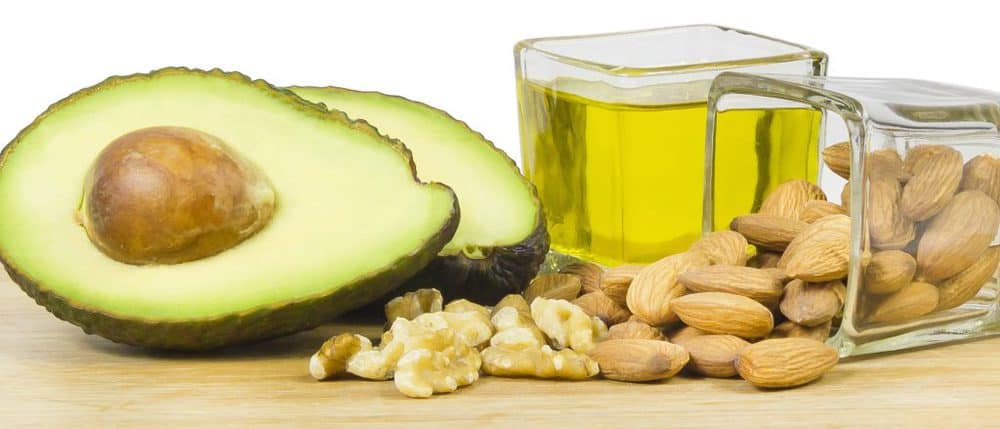
You’ve probably heard this before: Fat makes us fat. Fat contributes to heart disease, leads to “diabesity“; saturated fat is bad; vegetable oils are good…I could go on, but I think you know what I’m talking about.
What’s crazy is: None of these facts about fat are true.
Those statements applied a blanket rule for ALL fats, when in fact, the different types of fat out there have very different effects on your body.
Some fats are bad for you. But the right fats can help you become lean, healthy, vibrant and even help you lose weight!
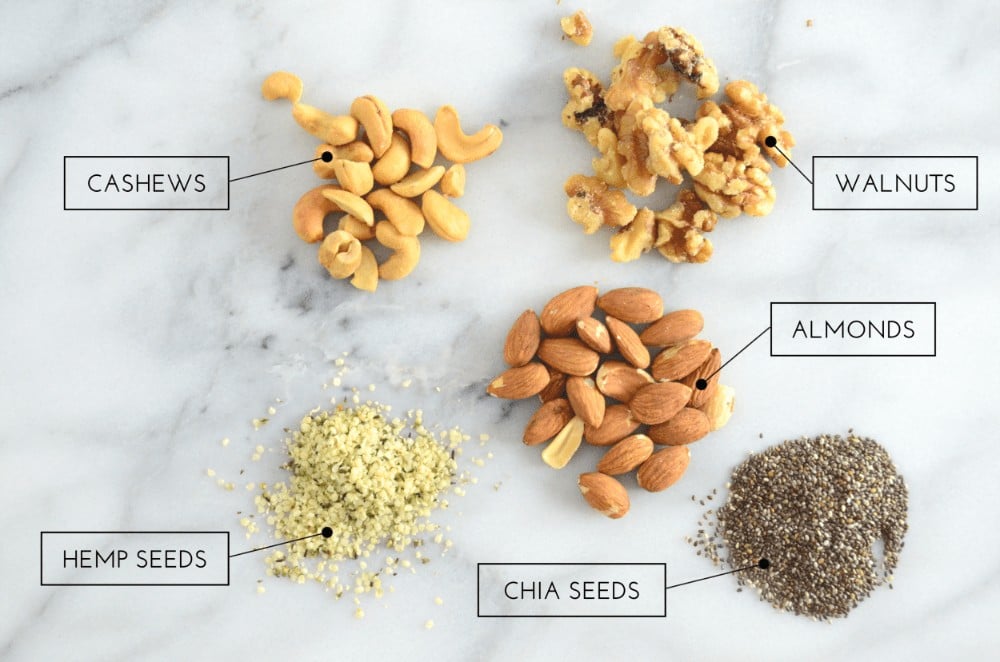
Why do we need fat?
Fat is one of the body’s most basic building blocks. The average person is made up of between 15 and 30 percent fat! Your body can’t make essential fatty acids on its own, which is why we need dietary fat to give us what our body needs. Fat also helps the body absorb vitamin A, vitamin D and vitamin E.
Yet for decades, we’ve unfairly demonized all fat in our diets. For years, we were told to follow a low-fat diet – which mainly equated to a high-sugar and high-refined carb diet (because when food manufacturers remove fat from food, they have to add sugar and carbs to make up for the lack in flavor). High sugar/high refined carbs contribute to insulin resistance, obesity, heart disease, type 2 diabetes, and numerous other problems.
So we need fat, but we need the right kinds of fat.
Facts About Fat: What fats are good for you?
The best fats are monounsaturated fats and polyunsaturated fats. These fats are heart-healthy, are good for your cholesterol, increase metabolism, and can reverse type 2 diabetes.
Examples of Monounsaturated fat include: olive oil, avocados, olives, all nuts and nut butter (almonds, peanuts, macadamia, hazelnuts, pecans, cashews)
Examples of Polyunsaturated fat include: all seeds (sunflower, sesame, pumpkin, flaxseed), walnuts, fatty fish and fish oil
Do Good Fats Make You Fat?
This is one of those “facts about fat” that is more of a myth than a fact. In general, no. Sugar, not fat, makes you fat. But you can always have too much of a good thing – so if you’re eating good fats in excess you may still gain weight. But good fats eaten in moderation as part of a balanced diet should not make you gain weight!
Facts About Fat: What fats are bad for you?
The worst fats to eat are trans fats. You can find trans fats mostly in processed foods: packaged snack foods, fried foods, anything containing “hydrogenated or partially hydrogenated vegetable oil”, margarine, shortening, etc.
Note: Saturated fat has gotten a bad rap but it is not nearly as bad as trans fat, and some saturated fat can actually be good for you (should be about 10% of your daily calories). But too much saturated fat can negatively impact heart health. The key to saturated fat is: eat it in moderation. The main sources of saturated fat are: red meat, whole fat dairy, coconut and palm oil.

The 10 Facts About Fat You Need To Know
Contributed by Dr. Hyman from his book: Eat Fat, Get Thin.
#1 | Sugar, not fat, makes you fat.
The average American eats 152 pounds of sugar and 146 pounds of flour that converts to sugar every year. That’s nearly a pound of sugar and flour combined every day! More sugar means your cells become numb to insulin’s “call.” Your body pumps out more and more insulin to pull your blood sugar levels back down. You can’t burn all the sugar you eat. Inevitably, your body stores it as fat, creating insulin resistance and overall metabolic havoc among other mayhem.
#2 | Dietary fat is more complex than sugar.
There are some 257 names for sugar, but despite very minor variations, they all create the same damage. In other words, sugar is sugar is sugar; it all wreaks havoc on your health. Fat is more complex. We have saturated, monounsaturated, polyunsaturated, and even trans fats, not to mention subcategories within each group. Some fats are good; others neutral; and yes, a few are bad.
#3 | Low-fat diets tend to be heart-unhealthy, high-sugar diets.
When people eat less fat, they tend to eat more starch or sugar instead, and this actually increases their levels of the small, dense cholesterol that causes heart attacks. In fact, studies show 75 percent of people who end up in the emergency room with a heart attack have normal overall cholesterol levels. But what they do have is pre-diabetes or type 2 diabetes.
#4 | Saturated fat is not your enemy.
A review of all the research on saturated fat published in the American Journal of Clinical Nutrition found no correlation between saturated fat and heart disease. As with all fats, quality becomes key here. The fats in a fast-food bacon feedlot cheeseburger will have an entirely different effect than saturated fat in coconut oil. Let’s stop classifying it all as the same.
#5 | Some fats are unhealthy.
They include trans fat and inflammatory vegetable oils (which are processed seed oils like soybean oil, sunflower oil, corn oil, canola oil, cottonseed oil, safflower oil and a few others). Vegetable oils contain very large amounts of biologically active fats called Omega-6 polyunsaturated fatty acids, which are harmful in excess. This does NOT apply to healthy plant oils like olive oil or coconut oil, which are extremely good for you. Unfortunately, trans fats and processed seed oils have increased in our diet, and they make us fatter and contribute to inflammation, which plays a role in nearly every chronic disease on the planet.
#6 | Everyone benefits from more omega 3s.
About 99 percent of Americans are deficient in these critical fats. Ideal ways to get them include eating wild or sustainably raised cold-water fish (at least two servings weekly), buying omega-3 rich eggs, and taking an omega-3 supplement twice a day with breakfast and dinner that contains 500 – 1,000 milligrams of omega-3 fats (a ratio of roughly 300 EPA to 200 DHA is ideal).
#7 | Eating fat can make you lean.
Healthy cell walls made from high-quality fats are better able to metabolize insulin, which keeps blood sugar better regulated. Without proper blood sugar control, the body socks away fat for a rainy day. The right fats also increase fat burning, cut your hunger, and reduce fat storage. Eating the right fats makes you lose weight, while eating excess sugar and the WRONG types of fat make you fat.
#8 | Good fats can heal.
Many diabetic patients have improved health when they are on a diet higher in fat. Sometimes increasing the amount of healthy fat in a patient’s diet can actually help them lose weight!
#9 | Your brain is about 60 percent fat.
Of that percentage, the biggest portion comes from the omega-3 fat called docosahexaenoic acid (DHA). Your brain needs DHA to spark communication between cells. Easy access to high-quality fat boosts cognition, happiness, learning, and memory. In contrast, studies link a deficiency of omega-3 fatty acids to depression, anxiety, bipolar disorder, and schizophrenia.
#10 | Your body gives you signs whether or not you are getting enough quality fat.
The higher-quality the fat, the better your body will function. That’s because the body uses the fat you eat to build cell walls. You have more than 10 trillion cells in your body, and every single one of them needs high-quality fat. How do you know if your cells are getting the fats they need? Your body sends signals when it’s not getting enough good fats. Warning signs include:
- Dry, itchy, scaling, or flaking skin
- Soft, cracked, or brittle nails
- Hard earwax
- Tiny bumps on the backs of your arms or torso
- Achy, stiff joints
The right fats can improve your mood, skin, hair, and nails, while protecting you against Type 2 diabetes, dementia, cancer, and much more.
Final Thoughts
Fat can be good for you. Healthy fats (like those listed above) should be in your diet every day. Sugar, trans fats and processed seed oils/vegetable oils are the true culprits – so make sure to avoid those as much as possible. And like everything, be sure to eat good fats in moderation as part of a balanced diet!













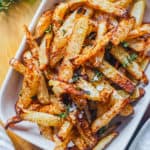





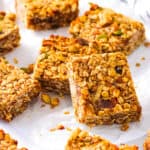




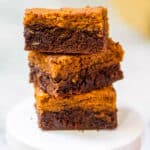






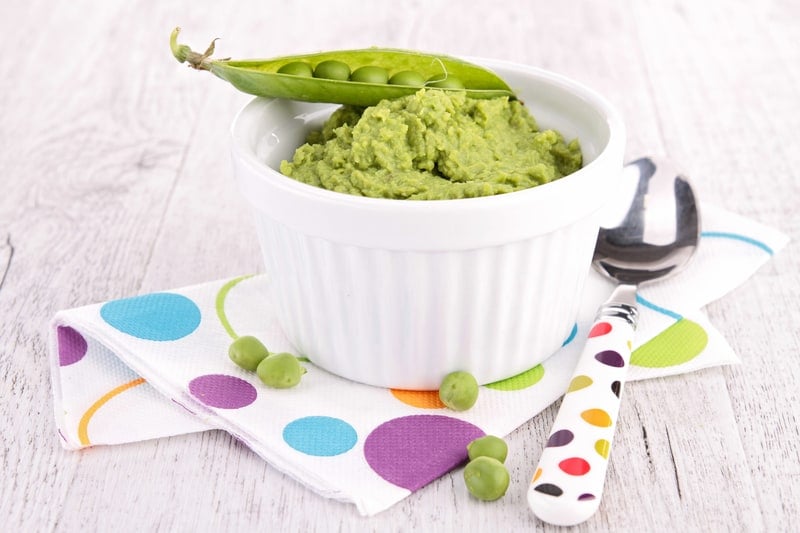
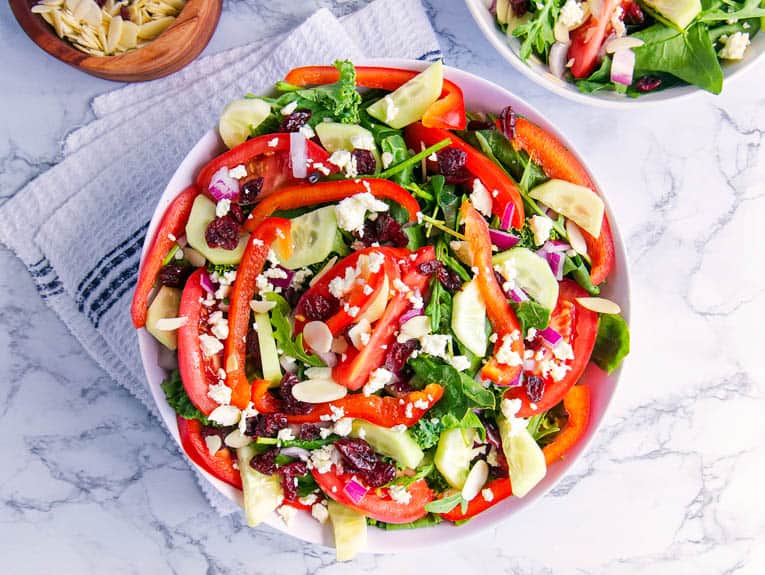


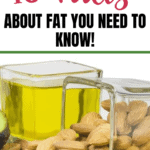
Thank to for your post, there is so much information on here! It’s so true that there are many different types of fats. I love how you emphasize that Sugar is what makes you fat. Its important for people to understand that there are different types of fat. Like you mentioned, some fats can actually be good! However, I did not know that our brain is 60% fat. I will definitely need to start taking my omega 3 vitamins every day!
Thank you so much Renee! I’m so glad you found this helpful. It can definitely be confusing with all of the information out there – but yes the main takeaway is that certain fats are beneficial and shouldn’t be avoided 🙂
Great info! Thank you so much for this post!
Glad it was helpful!
This is a great article. I am a big fan of your website. I totally agree with the fact that, nowadays, there seems to be a war against fat that is completely unsustained.
However, I would like to point out that, while assisting a specialized course for type two diabetes (I am a senior medicine student), it was explained to us that the main problem when it comes to the ethiology of the problem is actually fat in diet; fat from the diet (as well as the excess abdominal fat, secondary of course to the increased sugar intake) is a key mechanism in insulin resistance. In this course they could not emphasize enough the importance of consuming fat in a controlled manner, about 4-5 tbsp a day, if I remember correctly; but never more than that, because they claimed it would induce longer hyperglucemias in spite of a having a sensible sugar consumption.
I am sorry if this appears rude, I don´t want to offend you, but want to know your opinion on this matter. Perhaps you were already aware of this and thought it was “obvious”, but where I have studied (France in Spain) fat consumption can be very very high – a lot of olive oil, yes, but in huge quantities, which is what leads to type 2 diabetes (combined, as you mentioned, with the sugar intake!).
I am looking forward to hearing your opinion about this.
Congratulations again on such a great website!
Thank you so much Maria! 🙂 You brought up a great point. While many fats are healthy, fat absolutely needs to be consumed in moderation. Someone can’t just eat a ton of olive oil (and a bunch of other junk food) and assume that will keep them healthy! And yes, belly fat is one of the main contributors to type 2 diabetes. No matter how you acquire the belly fat, whether it’s through too much sugar or too much fat, you will be at risk for diabetes. But, the sugar is more likely to contribute to belly fat than healthy fats will when someone isn’t eating excessively. The USDA recommends that healthy fats should account for about 30-35% of your daily calories, which is a good guideline for people to follow. Even if you’re eating a diet of healthy fats, lean protein, fruits & veggies, if you’re eating like 6,000 calories a day and you’re not an athlete, you will gain weight, likely in your belly, and you will probably be at risk for diabetes. Short answer: there can be too much of a good thing! The main point of this post was just that fat has been villainized so much over the past few decades, when in fact, processed foods, trans fats/vegetable oils, and sugar are to blame for the rising obesity and diabetes issues in our society. Hope that helps clarify! Let me know if you have any other questions or thoughts!
Wonderfully written piece. How about nut oils such as groundnut oils? Ghee?
Thanks Priya! Nut oils (walnut is the best) and ghee are both great in moderation. Just one tip – when cooking with nut oils, remember that they respond differently to heat — if overheated, they can become bitter. Otherwise they are great!
Awesome information! Thank you.
No problem! So glad it’s helpful!
Hello and thank you for this article. If I was eating a 1400 calorie low fat diet before, and now wish to transition to 50%-70% fat, should my total calories, be lower, stay the same or be higher for weight loss? Thank you for helping me transition with success!
Hi April! I would try keeping your total calories the same, but just adjusting how many of those calories you get from healthy fats. I’d start with 50% fat and see how it goes. If you do decide to try reducing your total calories but increasing your fat intake, just be sure that keep your total calories to be at least 1200 per day. I’d also recommend chatting with your doctor or nutritionist to make sure this is the right plan for you! Hope that helps, let me know if you have any other questions and good luck! 🙂